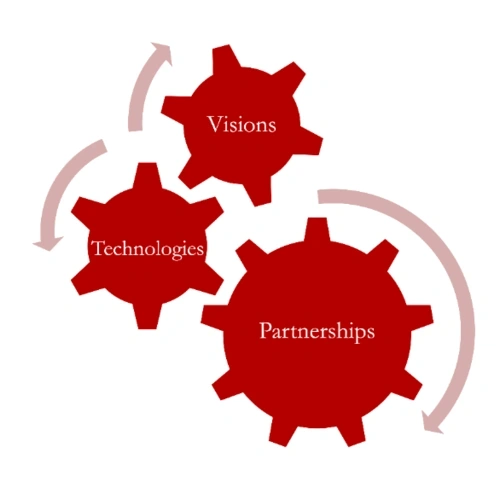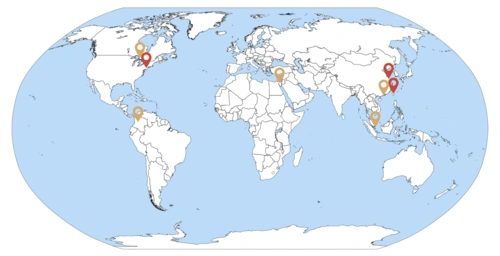What Is Knowledge Building?
Knowledge building engages students directly in the processes through which knowledge is advanced in the world. It envisions formal education to create pathways for all students to become part of a rapidly evolving knowledge-creating culture crucial for today’s society. Besides developing knowledge as a personal good, students in knowledge-building classrooms are empowered to create knowledge as a “public good” of value to their communities and the world.
What We Do
Knowledge building has its footprints in more than 20 countries around the world. As an ambitious approach to education, its implementation requires a system of theories, principle-based practices, technologies, and analytics to work synergistically together. It demands critical reflection on current systems and creative redesign of educational infrastructures in order to continually improve conditions for knowledge building.
The Knowledge Building Innovation Network (KBIN) brings together interdisciplinary expertise and diverse experiences of working with education systems around the world to develop and improve infrastructures for knowledge building. KBIN strives for systemic educational change through technology innovation, robust research, and local capacity building. It is committed to creating and sustaining research–practice partnerships, as well as reciprocal partnerships among international collaborators. By leveraging the collective intelligence of educators, researchers, and engineers, and through iterative design and development, KBIN produces practical models of implementing knowledge building in diverse educational systems, as well as resources and infrastructures sharable among members of the network.
Penn Global Project: KBIN in Greater China

With support from the Penn Global Research & Engagement Grant Program, we launched an innovation network in 2023 to support K–12 educators in Greater China to implement knowledge building while designing innovative ways of integrating the UN Sustainable Development Goals in their schools. This effort responds to a strong interest in alternative visions of education in Greater China. Following the design-based implementation research approach, KBIN bridges Penn and two university–school partnerships in Nanjing and Taipei, engaging teachers, school leaders, and researchers in generating actionable plans to integrate knowledge building and sustainable development in their schools.
- Engaging K–12 teachers in professional learning about knowledge building and sustainable development goals.
- Organizing “design sprints” to engage teachers in creating plans to implement knowledge building and integrate sustainable development goals.
- Supporting teacher learning and teacher design with AI technologies.
- Conducting research on teacher learning, teaching practice, and school change.
- Bodong Chen, University of Pennsylvania
- Huang-Yao Hong, National Chengchi University
- Yibing Zhang, Nanjing Normal University
- Mei-Ju Chen, National Tsing Hua University
- Ying-Tien Wu, National Central University
- Yu-Hui Chang, National Sun Yat-sen University
- Xueqi Feng, Southern University of Science and Technology

Generative AI for Knowledge Building
In collaboration with educators and researchers in our global network, we are actively designing and experimenting with ways of using generative artificial intelligence (GenAI) in knowledge building. Following intelligence augmentation and human–computer co-creativity approaches, we seek to carefully integrate GenAI such as ChatGPT into students' knowledge-building dialogues. In collaboration with partners of KBIN, we run design sprints, conduct classroom-based research, and develop next-generation knowledge-building environments powered by GenAI.
About the Team

International Partners
Department of Education, National Chengchi University
School of Education Science, Nanjing Normal University
Institute for Knowledge Innovation and Technology, University of Toronto